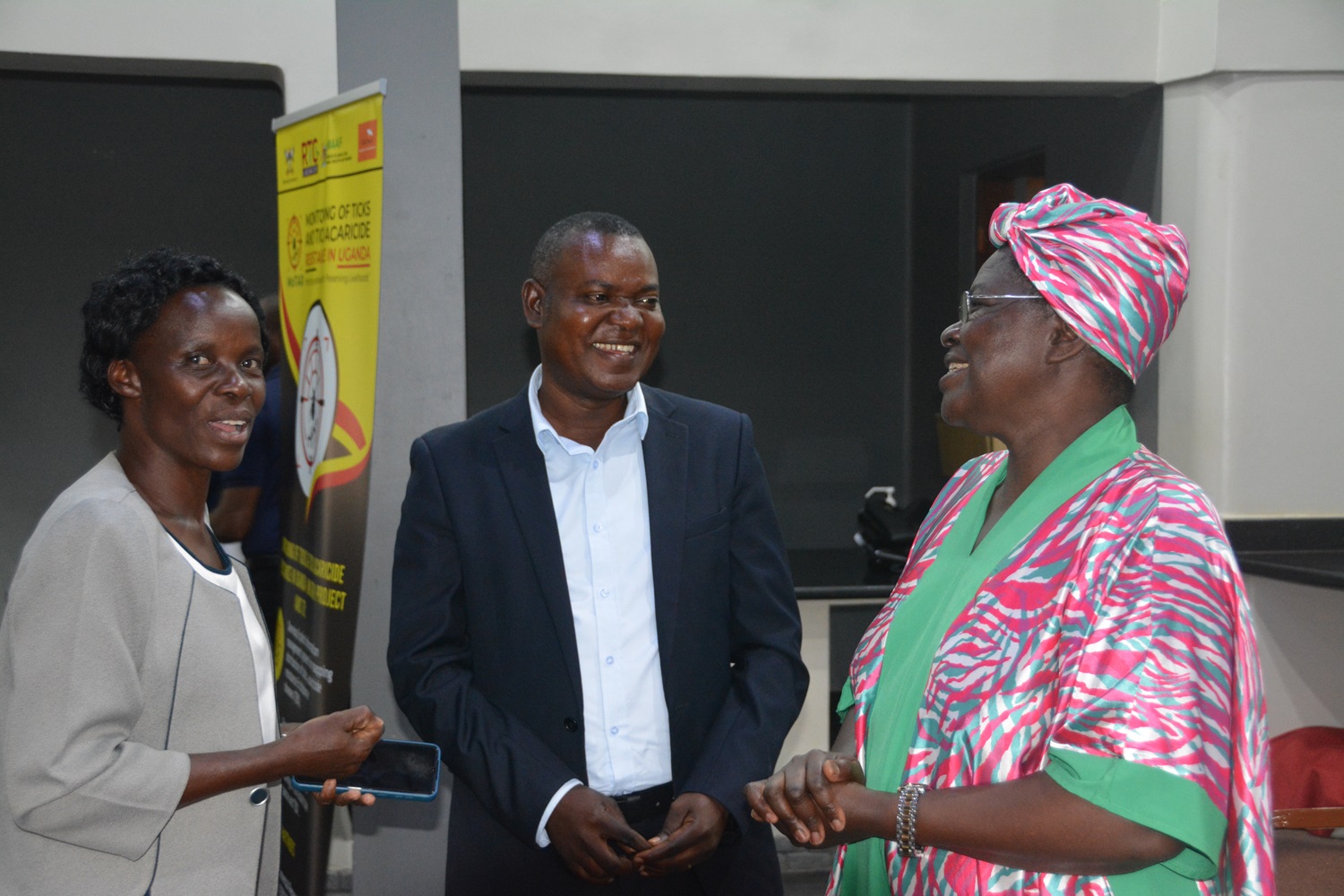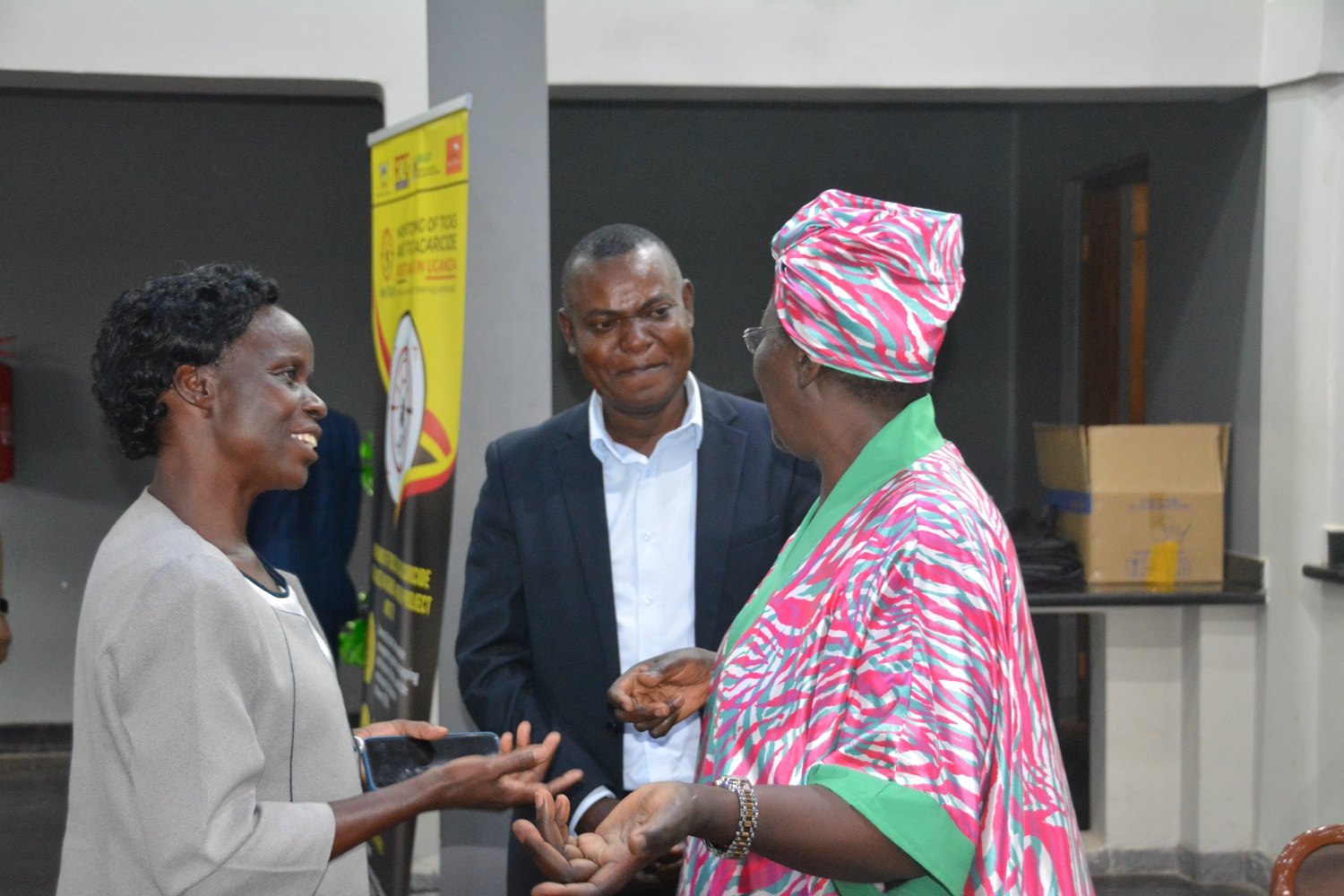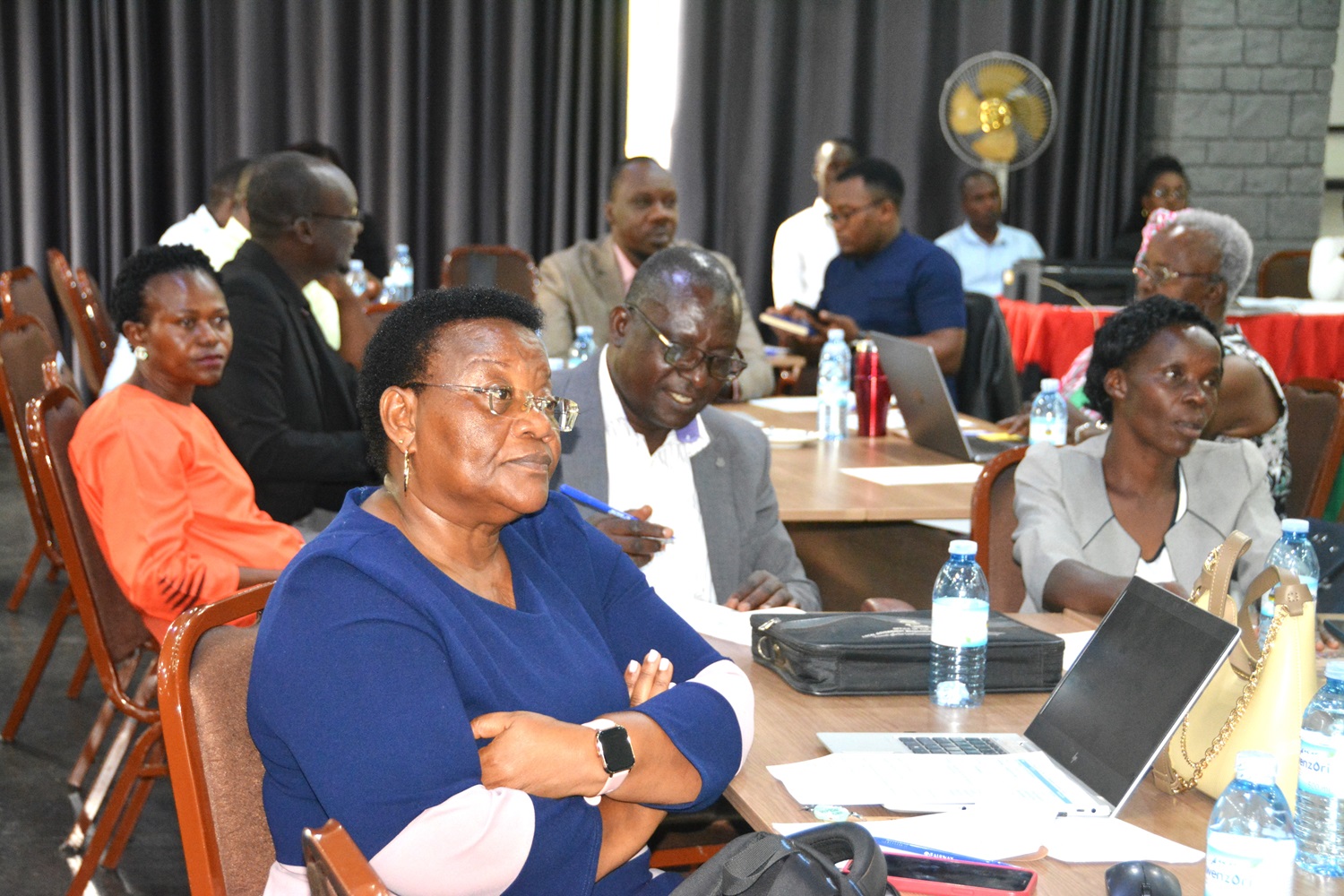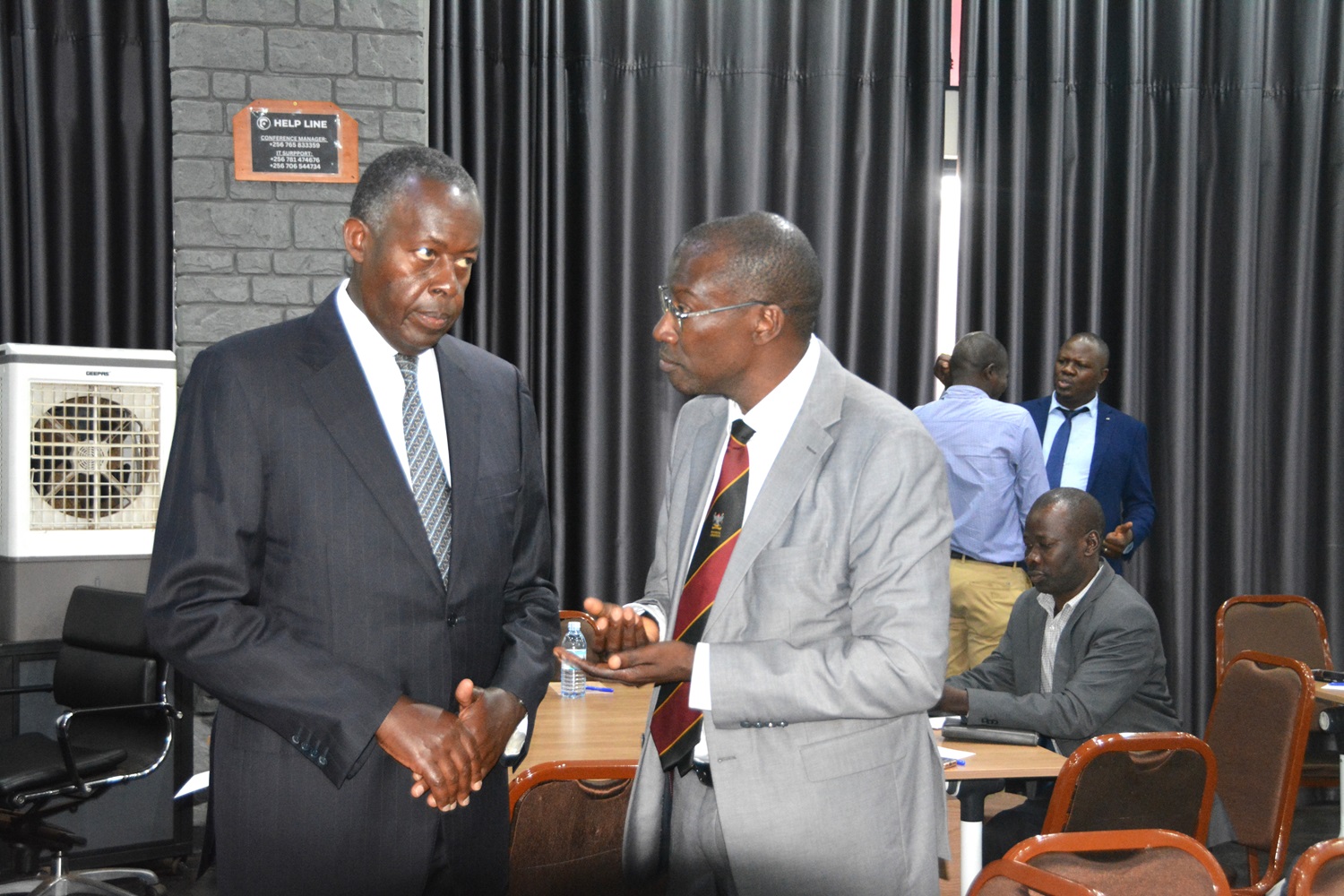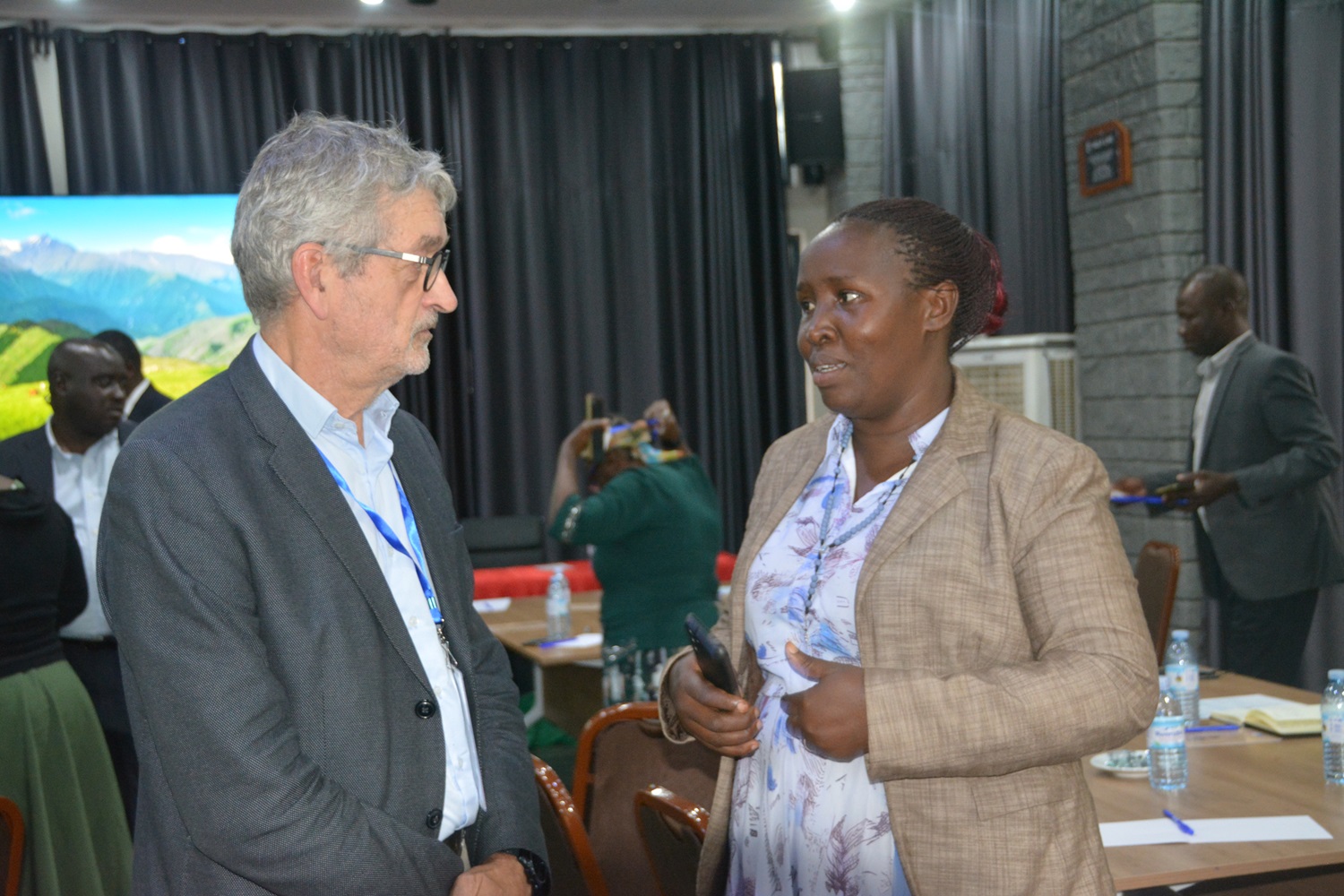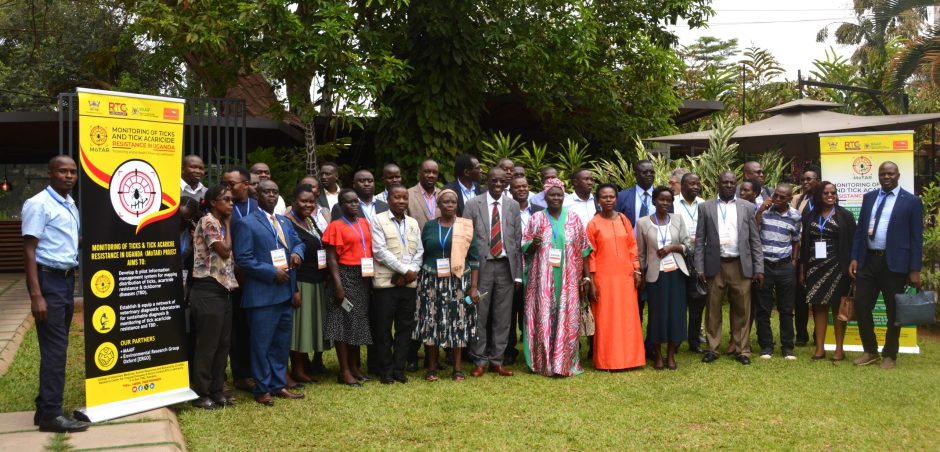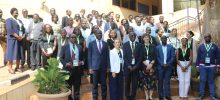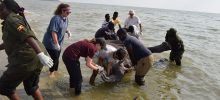Monitoring of Ticks and Acaricide Resistance (MorTAR) Laboratory Network Launch
The project, Monitoring of Ticks and Acaricide Resistance Laboratory Network (MorTAR) implemented by the College of Veterinary Medicine, Animal Resources and Biosecurity (CoVAB) has been launched. MorTAR, through a network of nine technically competent laboratories, aims to develop sustainable and scalable Tick Acaricide Resistance and Tick-Borne Diseases diagnostic capability in Uganda.
The intervention will effectively manage the two problems, Tick Acaricide Resistance and Tick-Borne Diseases, a key constraint in sustainable livestock production. According to Dr. Patrick Vudriko, the Principal Investigator, the project will support the establishment of a National Database with input from the Network of Laboratories and the involvement of other stakeholders that include the Ministry of Agriculture, Animal Industry and Fisheries (MAAIF), the Researchers, Academia and the respective local Governments.
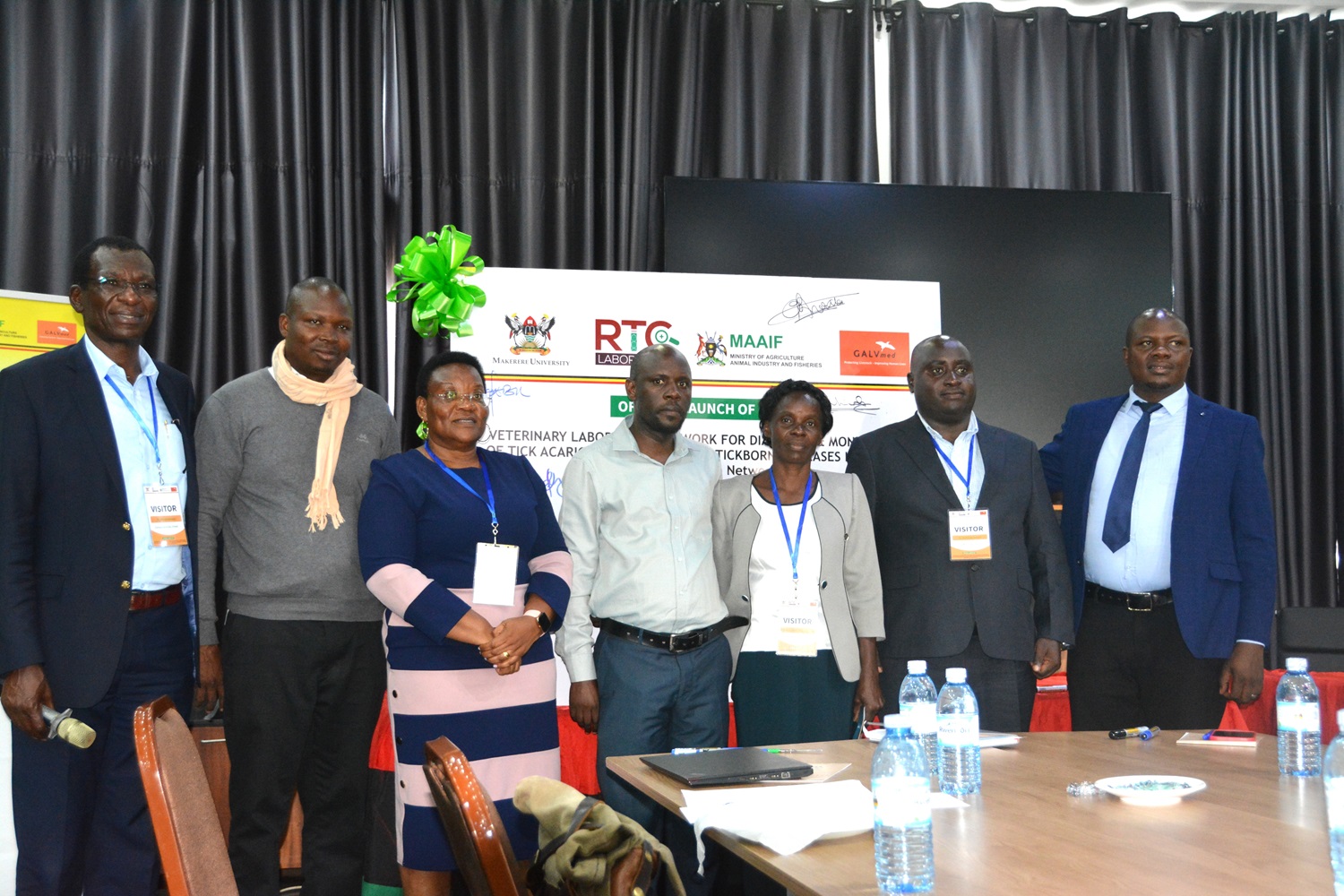
(L-R) The Project Coordinator Dr. Johnson Ouma, flanked by the Principal Investigator Dr. Patrick Vudriko and other stakeholders from Local Governments and MAAIF witnessed the launch held at Fairway Hotel, 10th October, 2024.
‘The subject of the intervention is ticks which have become a menace for over twenty years. We have reached a point now where we are almost exhausted. We see ticks that persist even after the application of chemicals coupled with disease reoccurrence and attendant mortalities, as observed by Dr. Vudriko. This comes with other challenges arising from efforts to resolve the problems such as the use of crop pesticides which affect the welfare of animals, food safety, losses experienced by farmers, and the effects on their livelihoods.
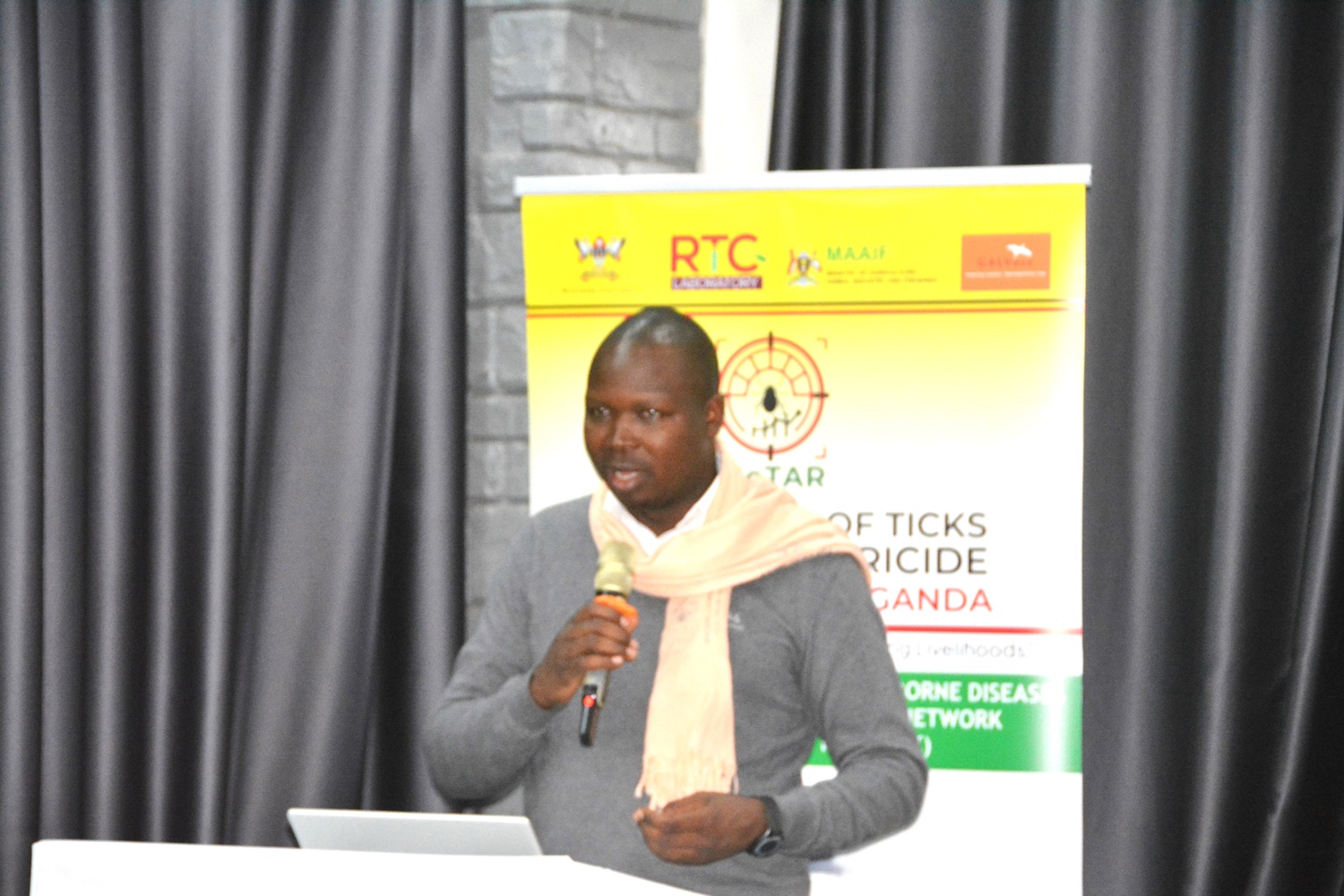
Dr. Vudriko Remarks
While talking about the milestones realized to date, Dr. Vudriko said the first batch of equipment and start-up reagents required to improve the labs were procured and handed over to the respective units, and the lab refurbishment processes were initiated. In addition, the information system consultant was procured, and started on the work, while the draft operational plans for the MorTAR Vet Labs network were developed.
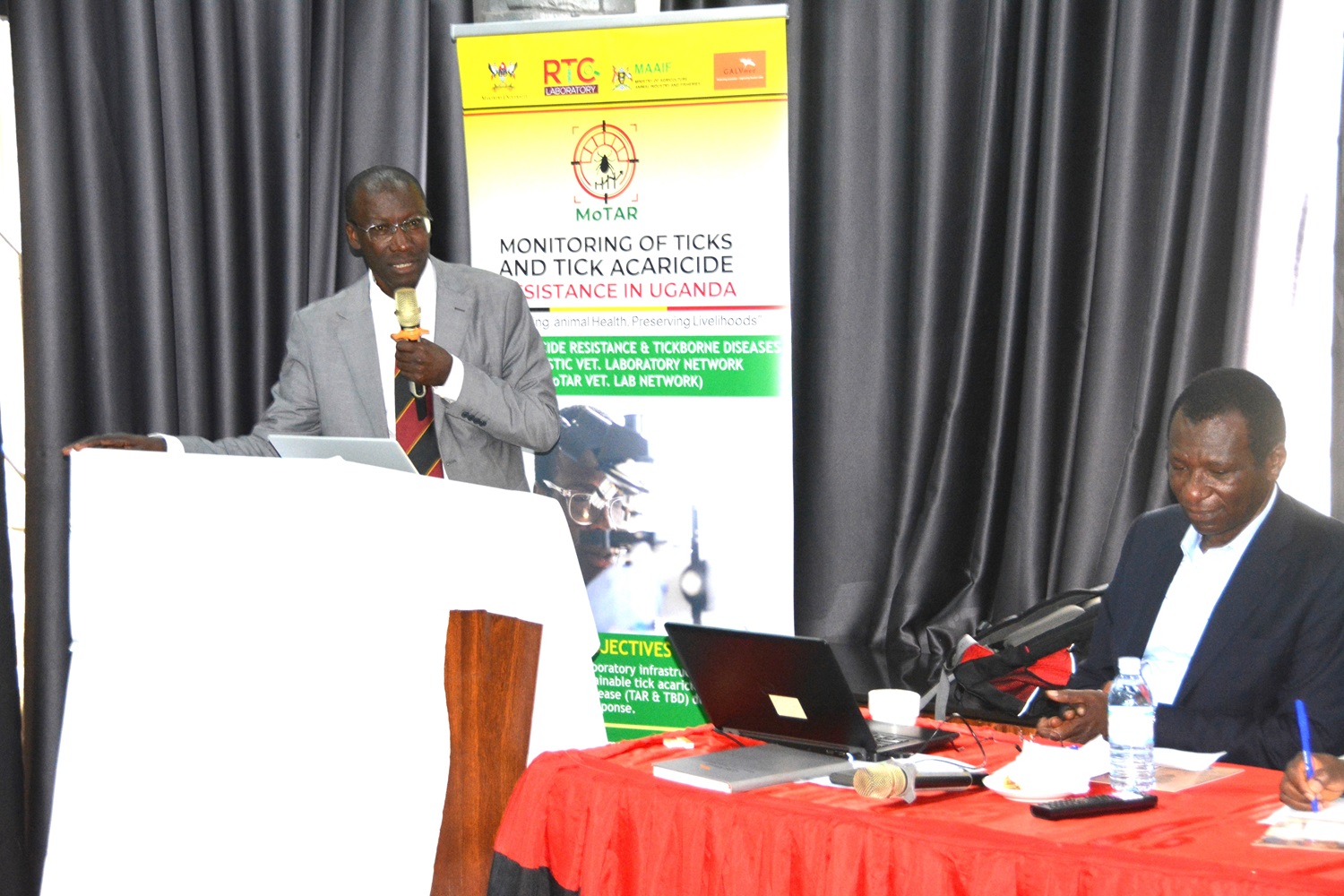
Prof. Frank Norbert Mwiine, the Principal CoVAB made his remarks at the launch, next is Dr. Johnson Ouma, the Project Coordinator
In his remarks at the launch of the project held on Thursday 10th October 2024 at Fairway Hotel, Prof. Frank Norbert Mwiine, the Principal College of Veterinary Medicine, Animal Resources and Biosecurity (CoVAB) Makerere University re- echoed that despite the efforts made in undertaking research in this area, there were still challenges of monitoring ticks and tick acaricide resistance in Uganda. He extended the appreciation of Makerere University to the Government of Uganda for the Research Innovation Fund worth Thirty Billion Uganda Shillings every year for the last five years. Through such support, the college has undertaken a lot of research in this field and this explains the availability of the needed evidence to show the gravity of the problem at hand. ‘If you want to talk about the core of the animal industry in Uganda, talk about ticks, the tick burden, and acaricides’, he said while emphasizing the importance of research. He said as a university, CoVAB in particular was doing its best in training but called upon the Ministry of Agriculture, Animal Industry, and Fisheries for continued support as a mother ministry.
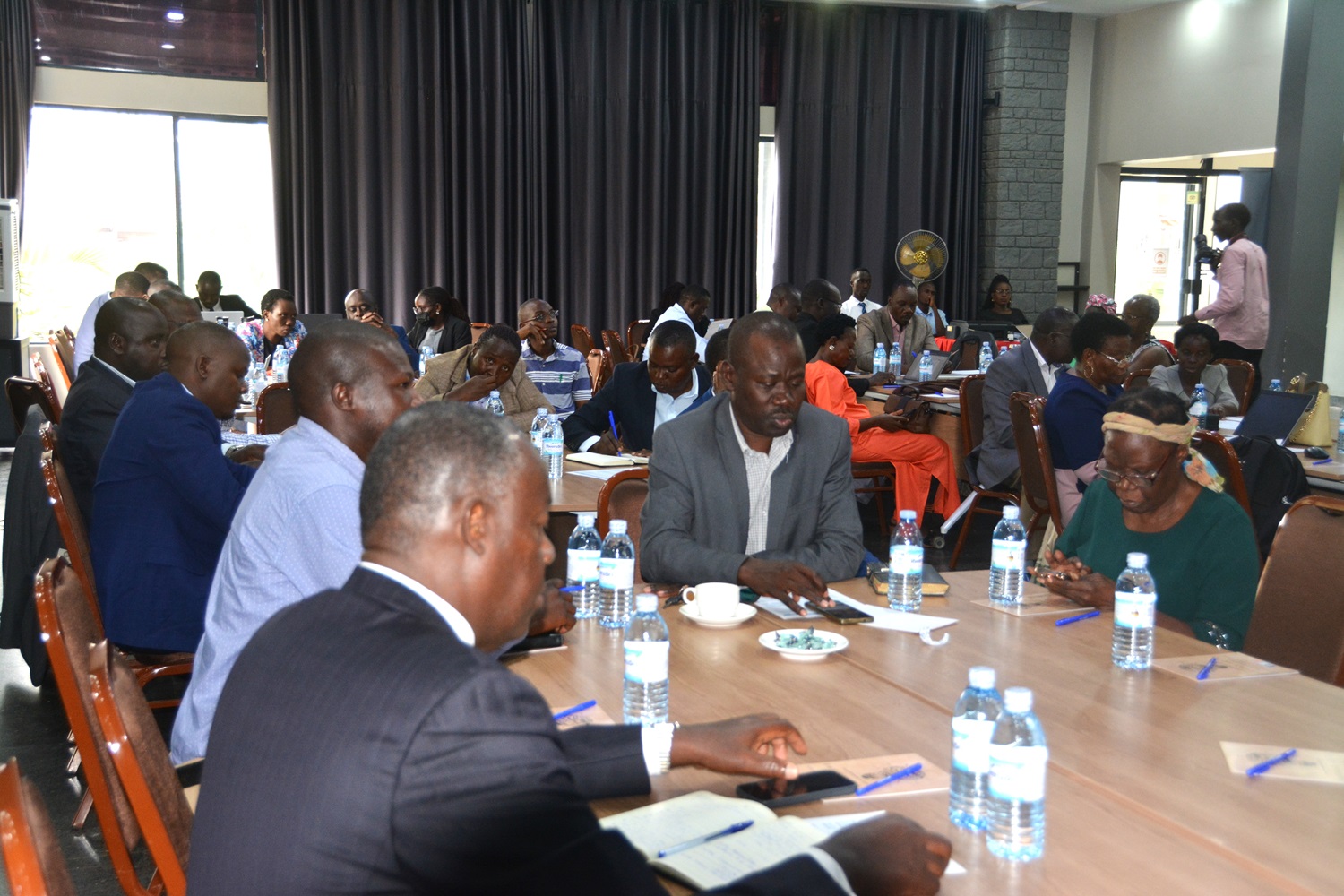
A section of stakeholders that were at the MorTAR launch including representatives from the Industry and the Academia
The MorTAR project comes in at a time when Makerere University, through the College of Veterinary Medicine, Animal Resources, and Biosecurity, the RTC Lab has undertaken extensive research in ticks, tick-borne diseases, and acaricide resistance in the country. From the research results, it was established that acaricide resistance was a major problem that needed to be handled more systematically. This intervention, by CoVAB in partnership with the Global Alliance for Livestock Veterinary Medicines is expected to generate the much-desired evidence to help inform policy on ticks, acaricide resistance, and tick-borne disease management in Uganda, thereby contributing towards the improvement of productivity and livelihoods among the community.
Dr. Johnson Ouma, the project coordinator while speaking on behalf of the Global Alliance for Livestock Medicines said GlavMED works with partners in the animal health industry to develop livestock vaccines, medicines, and diagnostics accessible and available to millions of small-scale producers in developing countries who depend on livestock for their livelihood. He said GlavMED has over time championed ease of accessibility of products through partnerships, product development, and increasing access to quality products that are of good quality and safe.
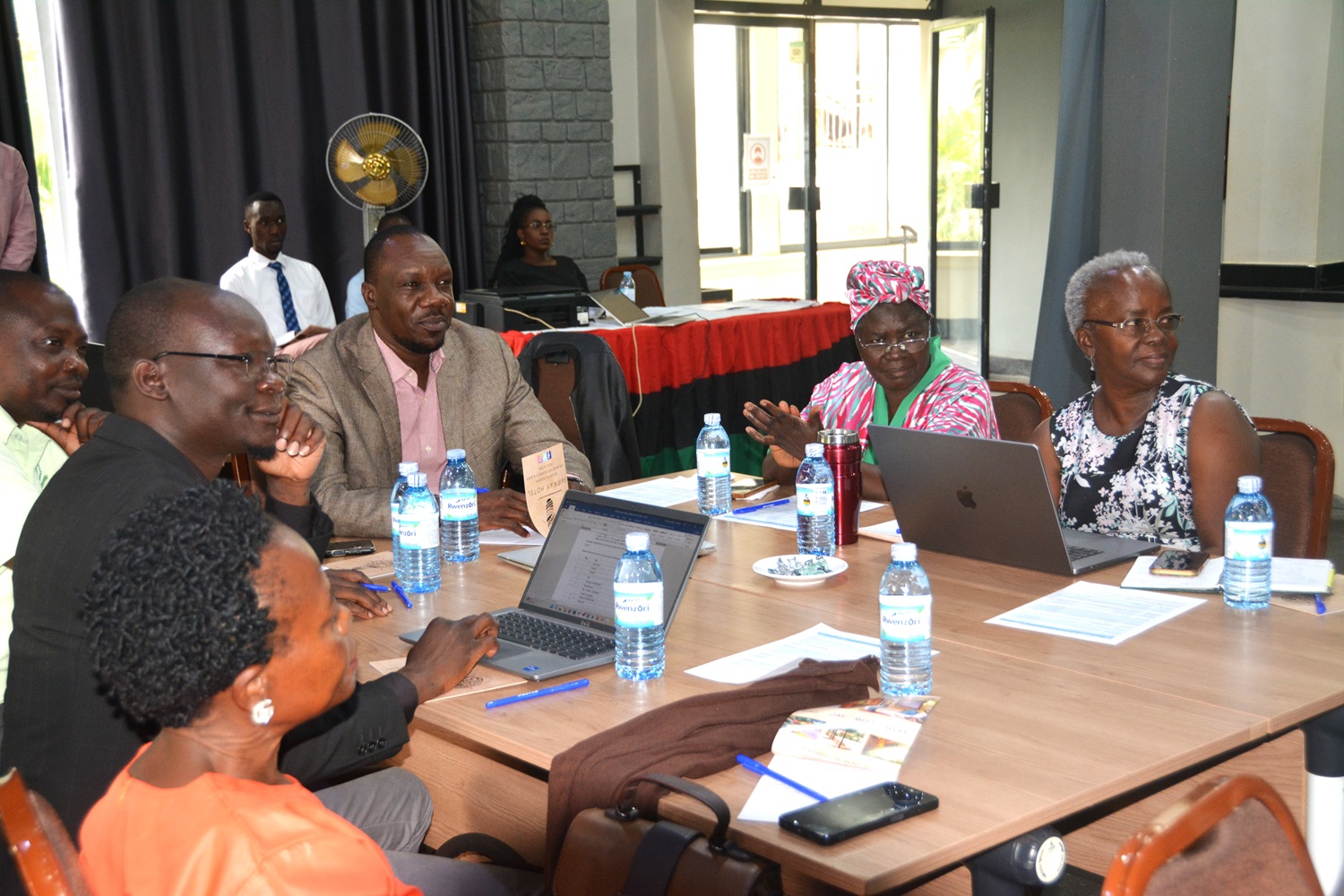
Dr. Florence Kasirye (R) and other members of the Uganda Veterinary Board were in attendance
He said an assessment of the existing labs in eight districts in Uganda gave them a background in establishing areas of strengthening the capacity. ‘For us, all we wanted to see is that labs are well equipped, the staff there are trained, and they can diagnose and identify incidences of resistance’, he noted. The selected labs include 3 private labs and 6 Veterinary diagnostic labs.
Other issues raised by stakeholders at the launch include the sustainability of the initiative given limited resources both financial and human at the Districts. It was noted that a few Districts had recruited Laboratory staff because of a lack of wages and the entire production unit staffing was reported to be below 40%.
The Launch was witnessed by Key stakeholders from the Industry, research centers, local Governments, the private sector, the line Ministry, farmer’s groups, and the academia.
Story. Musinguzi Harriet
Pictorial.
